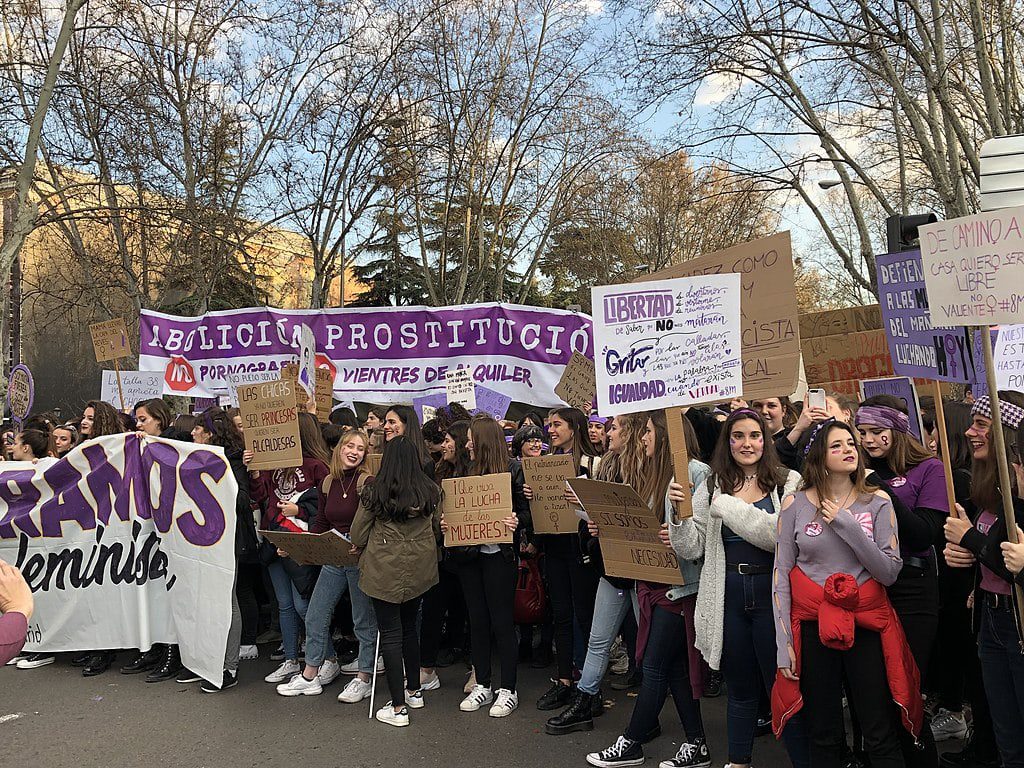
During the 8th of March International Women’s Day demonstrations, cities across Spain saw their streets divided between rival feminist factions. For the first time in its history, the event consisted of two separate marches.
The rift was ideological, one whose fault lines have gained prominence over recent years. The so-called “8M Commission” has historically organized public demonstrations on this day. However, its assemblies and forums have increasingly featured voices unhappy with the organization’s support for legally recognized self-determination of gender, as well as legalized prostitution. On these points, the 8M Commission is supportive of the leftist coalition governing Spain, embracing the idea that gender is a social construct and that sexual libertinage advances feminism.
Those representing what has been dubbed “classical feminist” ideology, including authors Amelia Valcárcel and Alicia Miyares, have taken the opposite positions, earning themselves the trans-exclusionary radical feminists (or TERF) label. The alternative march which they supported also included banners that read “Feminism is abolitionist,” referring to the abolition of prostitution.
Representatives of the socialists (PSOE) and Podemos parties participated on the 8M Commission’s side, although some members and ex-members of the PSOE have dissented. Former socialist party member Ángeles Álvarez, for example, criticized the Ministry of Equality for taking a side in this debate, adding that serious feminists must oppose attempts to hurt women’s rights under the disguise of progressivism.
